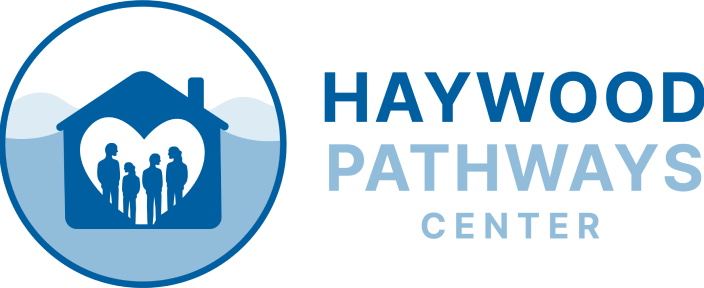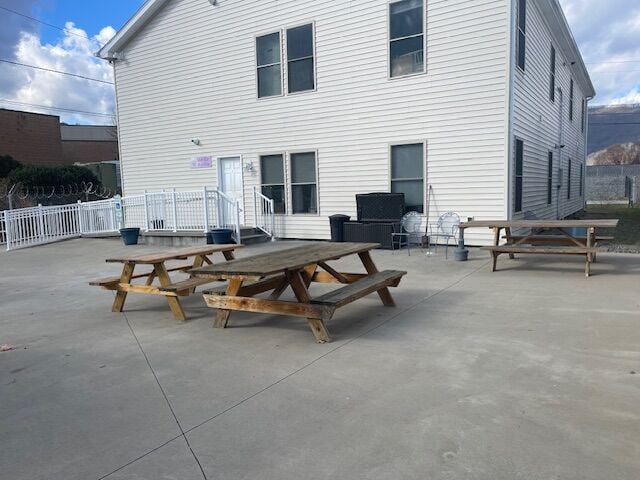Written by The Mountaineer
The Haywood Pathways Center has come a long way from its original vision more than a decade ago.
The journey started as a winter emergency shelter, then blossomed into a halfway house for those coming out of jail, and broadened to a homeless shelter for those working to rebuild their lives. It now serves a clientele far beyond those visions — including a growing number of elderly, those with disabilities and families with children.
“The situation is very different from the way it was in the beginning,” said Mandy Haithcox, the center’s executive director. “We still get people who are released from prison and people who want to get sober, but our residents come from all backgrounds.”
The Pathways has seen a significant rise in those experiencing homelessness due to a disability.
“In 2020, 2% of the people who stayed here was because of a disability with no related drug or alcohol issues. By 2022, that was up to 16%. These numbers are important to keep an eye on,” she said.

Marching toward the goal
Mountaineer readers have raised a total of $23,590 to date to help build a children’s playgr…
Over one-third of Pathways residents have full-time jobs, but don’t make enough to afford rent.
“Roughly 73% of folks staying with us have stable monthly income,” Haithcox said. “About 40% are working and of those who are working more than 90% are working full time.”
Haithcox said many individuals lost their rentals once the pandemic-driven moratorium on evictions was lifted. In other cases, people who were long-time renters lost their home through no fault of their own. Some landlords decided it would be more profitable to cash in on the red-hot, short-term rental market instead of permanent housing. In other cases, some Pathways residents lost their housing after a fire.
Donna, who preferred not todisclose her last name, lost her home when her mother went into a nursing home and the apartment lease couldn’t be transferred to her.
“I ended up staying with friends for quite a while, but I needed a hip replacement myself,” she said. “It’s hard to have surgery when you’re staying with someone else.”
Even though Donna, 53, was a lifelong Hazelwood resident, she didn’t really know much about the Pathways Center.
“I talked to a couple people who had been here, and they said I might be able to stay and have surgery,” she said. “I went to the hospital and then rehab for a short period of time before coming back here. Had it not been for Pathways, I still wouldn’t have gotten surgery.”
Donna’s life plan is to regain her mobility and then to find an apartment where she can bring her mother back home. She spent her career in healthcare working in long-term care facilities — a job she could no longer do after her back gave out from all the heavy lifting and she had three back surgeries. She has income from her disability, and could easily afford a low-income apartment where she could care for her mother.
“She wants to be home, and I want her to be home. Once I’m back up walking, I will be able to help her. For me, it was like when things started going down hill, it just kept rolling,” Donna said. “I could have never got this far without Pathways.”
A bit of history
While Haywood Pathways Center opened in September 2014, work began on the idea far earlier. The original vision is credited to former Sheriff Greg Christopher’s encounter with two inmates just released from jail who were sitting on the sidewalk in front of the jail with no idea of where to go.
Christopher put two up in a motel at his own expense and started talking about alternatives with the nonprofit/Christian community who had operated an emergency shelter during the winter, but was losing its location.
The groundwork was laid to lease the site of the former state prison in Hazelwood from the county for $1 a year, and transform the campus into a place where those searching for a way to turn their lives around were given the tools to do just that.
Since its inception, the plan is that anyone without a place to sleep can stay there for no longer than three days. After that, those who decide they would like to stay must submit to regular drug and alcohol screenings and must work with staff to come up with a life plan.
The plan is tailored to the individual and designed to help accomplish goals, whether it is to find a permanent place to live, get a job, complete or continue education, address mental health or addiction issues and the list goes on.
The original plan was that clients could remain at the center for up to six months, but as housing has become increasingly hard to find, the maximum length of stay has been extended.
The center has room for 32 men, 28 women and 10 families.
Faith-based program
From the beginning, Haywood Pathways Center was set up as a faith-based program. Churches in the community provide not only much-needed financial support, but also volunteer and offer moral support to the center’s residents.
A campus chaplain has a Bible study group that many residents are excited about, Haithcox said, and the chaplains are considering ways to offer Sunday services on campus.
When temperatures drop to below freezing, those who are living on the street can stay at the center no questions asked — with the drug and alcohol screening waived during what’s called “Cold Grace.” Because of the dining and kitchen area remodeling, a small conference room is the only designated space for those coming in during Cold Grace.
It only has room for five people. So far, that’s been enough to accommodate those who have showed up, Haithcox said.
“Last year, we had 80 unique individuals who came here during cold grace and about half moved into program,” she added.
Early on, organizers made a point of not accepting government funding, fearing that doing so may interfere with the faith-based mission, but that is not a problem as long as programs don’t required people being served to believe a certain way, Haithcox said.
“What keeps us from getting certain funding is the fact we do drug screening and require case management, which are two very important pieces on our program,” she said.
For Donna, the Pathways center was a Godsend.
“Life at Pathways sometimes gets a bad name,” she said. “But we have somewhere to sleep, there is food to eat and Mandy and Keri (Guidry, the assistant director at Pathways) are just great. We’re all kind of like a little family and try to take care of each other if someone needs something. If I were to leave, I would say I would miss it.”


